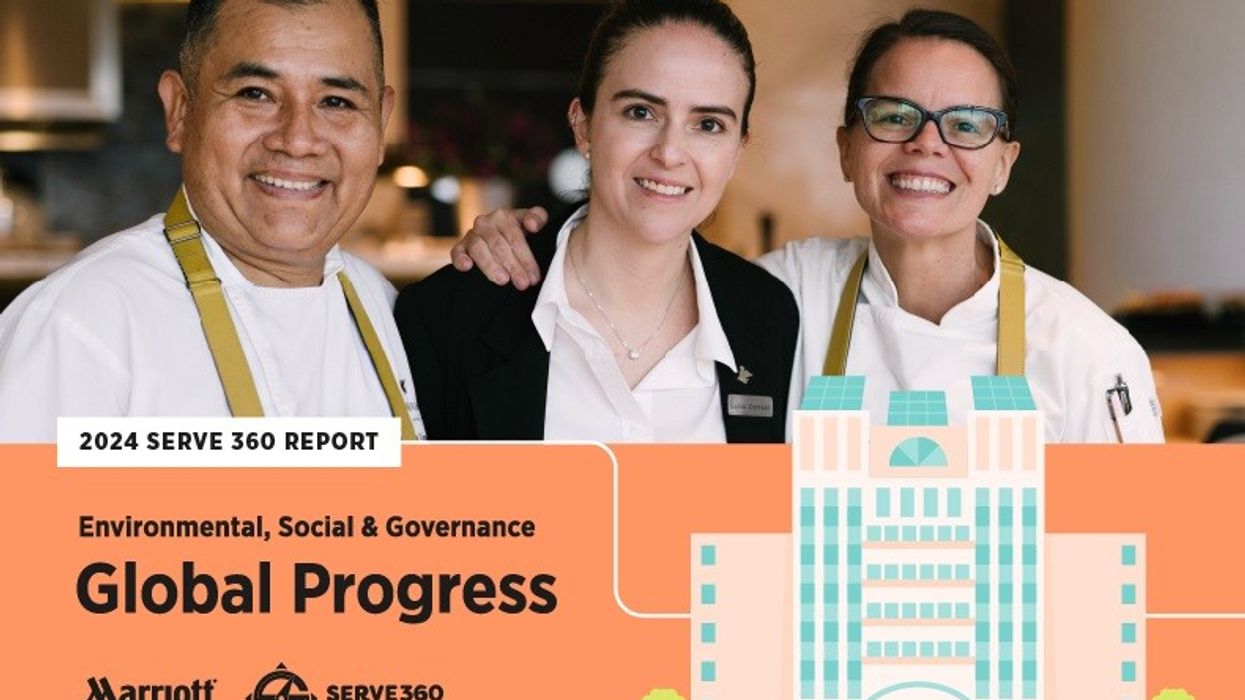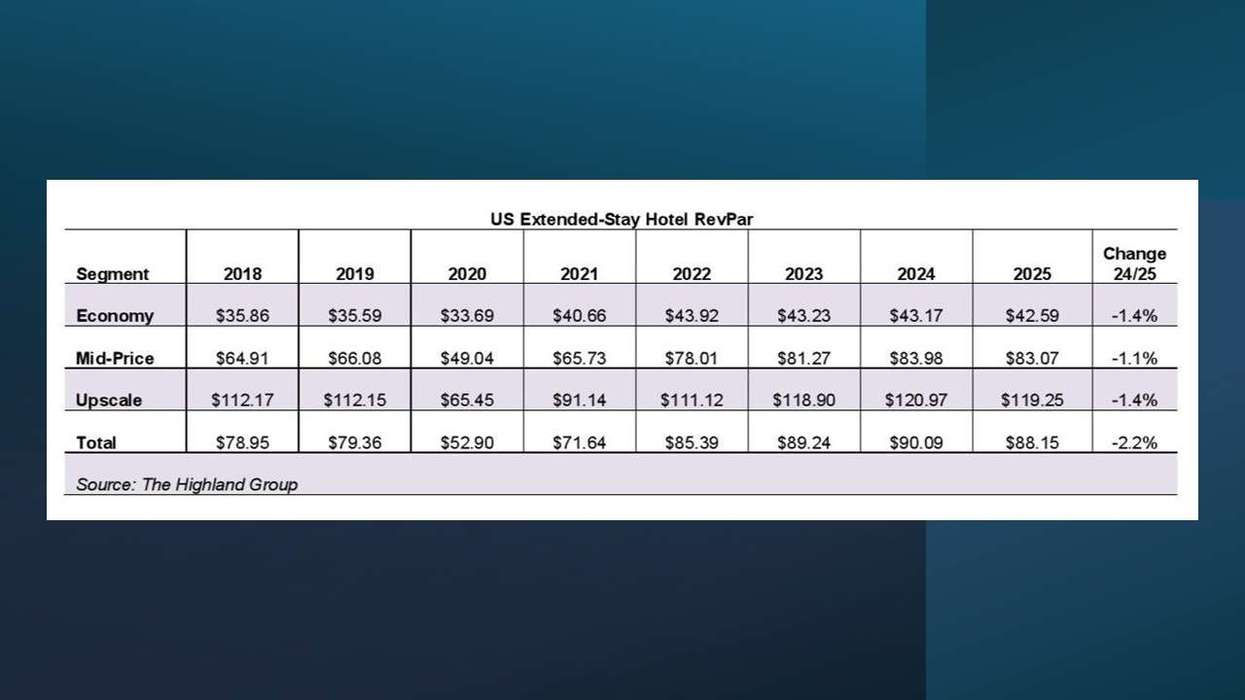Marriott ESG 2024 Report
MARRIOTT INTERNATION RECENTLY released its 2024 Serve 360 Report, detailing the company's global environmental, social and governance efforts and progress towards its 2025 sustainability and social impact goals. The report outlines data on sustainable operations, diversity and inclusion, volunteerism, and other ESG activities led by Marriott associates and hotels worldwide.
Based on the United Nations Sustainable Development Goals, Marriott's sustainability and social impact platform, Serve 360: Doing Good in Every Direction, guides the company’s ESG efforts through four focus areas: Nurture Our World, Sustain Responsible Operations, Empower Through Opportunity and Welcome All and Advance Human Rights.
The report reflects data for the calendar year ending Dec. 31, 2023, Marriott said in a statement.
“At Marriott International, we take great pride in our longstanding focus on the fundamental principles of taking care of people, our communities, and the planet,” said Anthony Capuano, Marriott International’s president and CEO. “We believe our efforts to be a force for good around the world in destinations where we operate can help support the long-term success of our business and the wellbeing of associates and guests. We are focused on fostering a more resilient, inclusive and responsible world for travel.”
The company’s actions on reducing climate change include:
- Verified its near- and long-term science-based emissions reduction targets with the Science Based Targets initiative in April 2024.
- Launched the Climate Action Program globally to all managed and franchised properties, centered on building climate fluency and developing property-specific carbon reduction goals to support progress toward the company's science-based targets.
- Expanded its EV charging infrastructure, with more than 7,100 EV chargers installed at 1,800+ Marriott properties worldwide by the end of 2023.
Community service initiatives included:
- Volunteered more than 3.1 million hours in local communities worldwide in 2023, with more than 12.1 million associate volunteer hours reported since 2016.
- Responded to the devastating wildfires in Maui, Hawaii, contributing approximately $5.5 million through the Marriott Disaster Relief Fund, TakeCare Relief Fund, Marriott Bonvoy points donations and cash and in-kind giving by hotels to support recovery efforts and provide essential items for impacted associates.
- Committed to hiring more than 3,000 refugees globally by 2026.
- Trained more than 1.2 million managed and franchised associates in human trafficking awareness since 2016, supporting Marriott’s goal to train all on-property associates by 2025.
- Launched an initiative with the Internet Watch Foundation and Cisco to block websites with child sexual abuse material from guest networks across nearly 5,000 managed and franchised properties in the U.S. and Canada.
The report includes an "Around The World Highlights" addendum, showcasing ESG initiatives across the company's regions: Asia Pacific excluding China, Caribbean and Latin America, Europe, Middle East and Africa, Greater China and the United States and Canada.
Additional regional highlights include:
- Raised nearly $970,000 in cash and in-kind donations by Marriott’s United Arab Emirates Business Council through annual Road to Awareness cycling fundraising events to support organizations focused on children's well-being.
- Supported the release of approximately 110,000 sea turtles through conservation programs at several properties across Mexico, aimed at protecting the species and their habitats.
- Engaged with Scholars of Sustenance through 66 hotels in Thailand, Indonesia and the Philippines to rescue over 81,000 kg of surplus food, resulting in more than 340,000 meals donated to communities in need.
- Hired more than 1,200 students with disabilities as full-time associates throughout the Greater China region.
- Increased the cage-free egg spend to 56.13 percent and 47.18 percent of total egg spend for properties in the U.S. and Canada, respectively.
Marriott recently launched "Business Access by Marriott Bonvoy," an online travel booking program designed for small and medium-sized business travelers.






